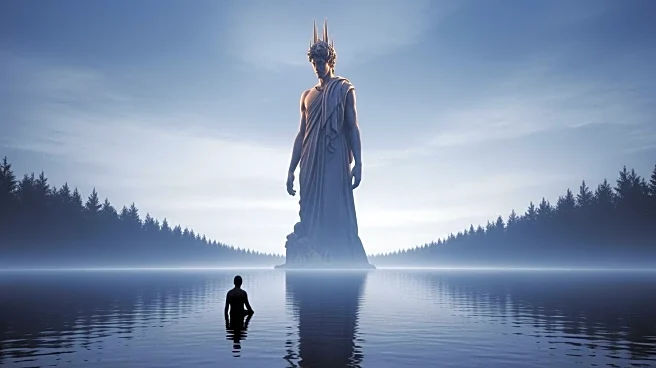What's Happening?
Shadow of the Colossus marks its 20-year anniversary, prompting a reflection on its narrative depth and moral complexity. The game, developed by Fumido Ueda, features a silent protagonist, Wander, who embarks on a quest to revive his love, Mono, by defeating
massive colossi. Unlike typical video game heroes, Wander's actions are morally ambiguous, as he intrudes upon and attacks the colossi, who bleed and react with animal nobility. This narrative choice creates an empathetic distance between the player and Wander, challenging the conventional hero narrative and inviting players to ponder the ethical implications of their actions within the game.
Why It's Important?
The significance of Shadow of the Colossus lies in its ability to subvert traditional video game narratives, offering a profound exploration of agency and morality. By distancing the player from the protagonist, the game encourages reflection on the consequences of Wander's actions, rather than simply condemning the player. This approach contrasts with other games that focus on player complicity, such as BioShock and Spec Ops: The Line, which often rely on direct moral condemnation. Shadow of the Colossus invites players to engage with the narrative on a deeper level, fostering a more nuanced understanding of heroism and ethical decision-making in gaming.
What's Next?
As Shadow of the Colossus continues to be celebrated, its influence on game design and narrative storytelling is likely to persist. Developers may draw inspiration from its approach to character agency and moral complexity, potentially leading to more games that challenge players to reflect on their actions and the narratives they engage with. The game's enduring legacy may also prompt discussions on the evolution of video game storytelling and the role of player agency in shaping immersive experiences.
Beyond the Headlines
The game's ambiguous ending, where Wander is transformed into a child and Mono is resurrected, adds to its lasting impact. This conclusion leaves players contemplating the consequences of Wander's quest and the nature of sacrifice and redemption. Shadow of the Colossus' ability to evoke empathy and introspection through its narrative choices highlights the potential for video games to serve as powerful mediums for exploring complex themes and human experiences.
















